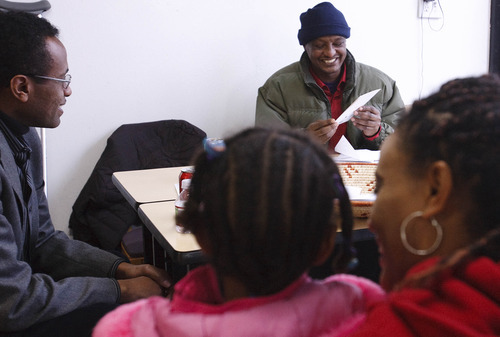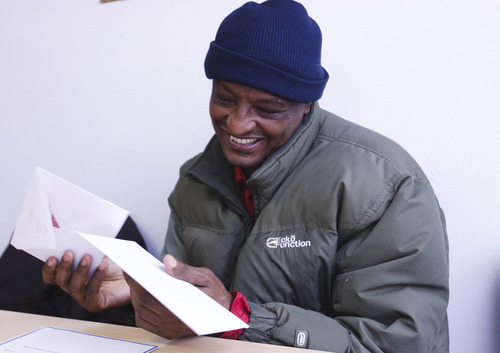This is an archived article that was published on sltrib.com in 2010, and information in the article may be outdated. It is provided only for personal research purposes and may not be reprinted.
They are two brothers, alone in Utah, taking care of each other.
Around them in Salt Lake City is a small Ethiopian community trying to help.
But for Terefe Abtew Mekonnen, 39, and his older brother, Beshaw A. Feleke, 40, the problem they face is bigger than they can handle.
Mekonnen has been diagnosed with end-stage renal disease; his kidneys are failing, a condition stemming from long-standing diabetes. He hopes for a costly kidney transplant.
This former Ethiopian refugee, now a permanent Utah resident, stares down at a shaky medical future with a brother beside him, but little else.
"I am worried about his life," said Feleke, his eyes drifting over to his younger brother, the only family member within reach.
Both spent time in refugee camps — Mekonnen's stay was 16 years — after fleeing a civil war that drove many Ethiopians from their African home.
A sister made it to Denver, and Feleke found an immigration sponsor in Utah. Mekonnen followed, coming to Utah five years ago ahead of his family to start a new life.
But Mekonnen's wife and two children still languish in Nairobi after spending time in a refugee camp as well. He has not seen them in four years.
"He has gone through so much in his life. Not many survive, " said Michael Mamo, an Ethiopian community organizer. To sustain his life, Mekonnen has been receiving dialysis three times a week for the past year. His situation is made worse as he is also mobility-impaired due to a case of polio that afflicted his left leg in early childhood.
Sitting with a crutch to his side, Mekonnen greeted friends and others who came to his fundraiser on Saturday in the Overseas Groceries store in Salt Lake. The doorbell chimed as the brothers sat in the store that serves the Ethiopian community.
Mamo is behind the fundraiser, a simple drive to get donations. A Westminster College assistant professor of economics, he is founder of the Ethiopian Community Association of Utah, a nonprofit organization that helps with community needs, from education to social functions.
"Sometimes we cannot support ourselves," said Mamo, who believes the Salt Lake Valley's Ethiopian population to be about 200 people.
Mamo, also an African immigrant, tells people that Mekonnen's physicians indicated the cost of a kidney transplant could be about $100,000 to $150,000 in the first year and $10,000 to $20,000 each year thereafter — hardly the kind of money friends say Mekonnen could easily scrape up.
The Gonder native started training for a job when he came to the U.S. But unemployment came quickly as the disease began to take over his life. And his brother's.
"He has been there for me," Mekonnen said, through an interpreter, about his brother.
Government health care assistance may help with some of his medical bills. But Mekonnen could have other less burdensome expenses as well in the next year: His family may get the federal green light to join him. Both are tentative as the government decides how and when it will help with his future.
How to help
I Ethiopian Community Association of Utah
(801) 502-5164
Donations accepted
Overseas Groceries, 1532 S. State St., and African Restaurant,1878 S. Redwood Road, SLC
Wells Fargo branches, Terefe M. Abtew account







